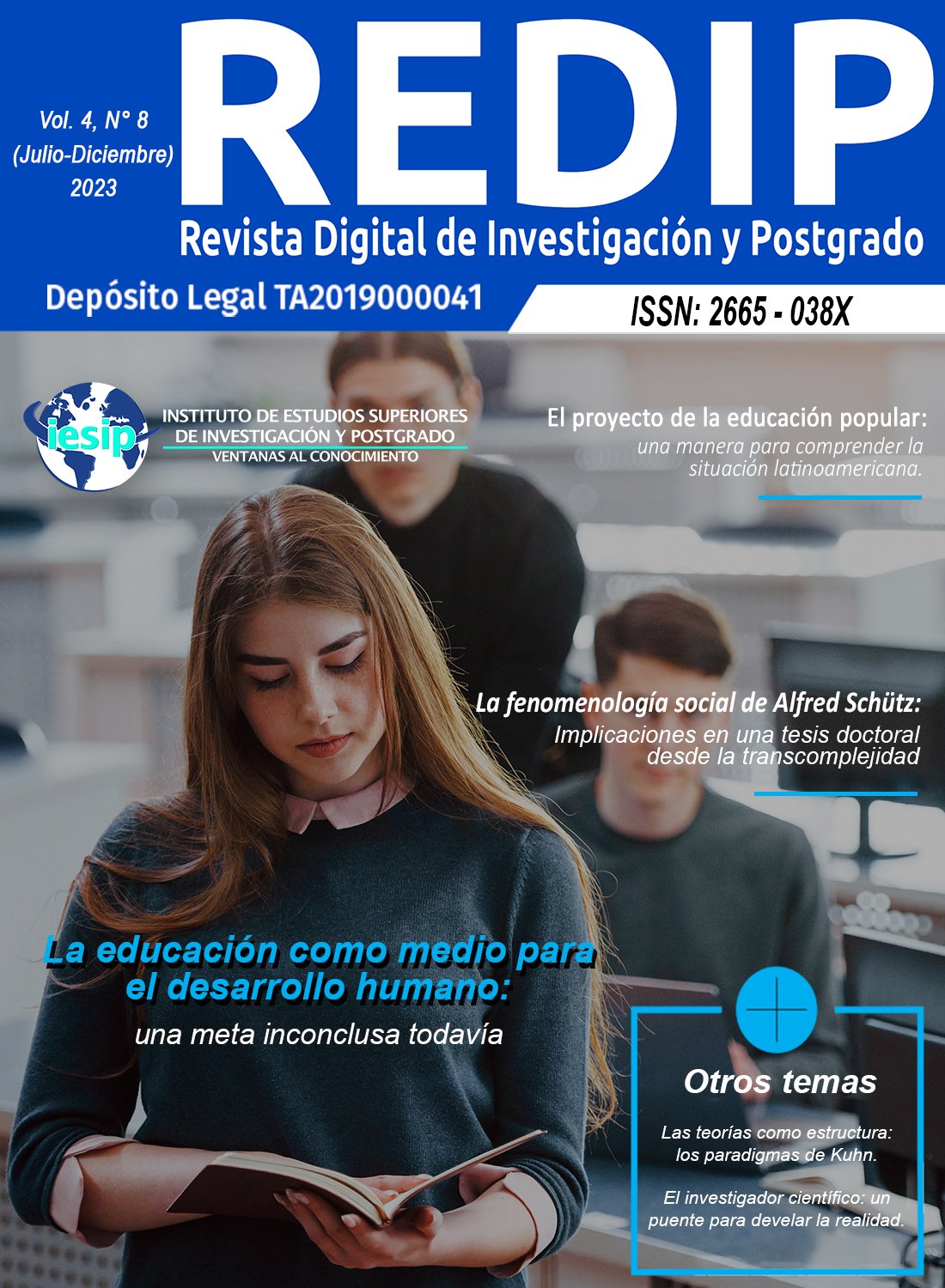Philosophical perspectives and implications of constructivism as epistemic model for education
DOI:
https://doi.org/10.59654/kzafrw32Keywords:
Constructivism in antiquity, Piagetian constructivism, sociocultural constructivism, radical constructivism.Abstract
The content map developed in this article contains several essential aspects that are likely to be unfinished due to the enormous complexity involved in the subject in question. The vision of constructivism goes back to the presocratic, but also in the modern age there are Descartes, Galileo, Newton and Kant. Subsequently, constructivism is developed formally through principles and concepts with Piaget, Vigotsky, Foerster and Glasersfeld. Consequently, the purpose of the article is to interpret constructivism from Greek antiquity to the present day with its contributions to education. It is concluded that knowledge can be built, the student is an active entity and the teacher must generate strategies that allow the development of knowledge construction by the student. Likewise, it is concluded that in the modern age the experiments developed by Newton and Galileo served as a guideline for the construction of hypotheses and verification of theories. Likewise, knowledge is constructed individually through a psychological process (Piaget); while Vigotsky assigns an important role to culture and context in the construction of knowledge. There are also some theses that are shared among the three constructivisms, but they are different proposals.
Downloads
References
Barrera, M. M. F. (2010). Modelos epistémicos en investigación y educación. Sexta edición. Sypal-Quirón editores.
Coll, C., Martín, E., Mauri, T., Miras, M., Onrubia, J., Solé, I. y Zabala, A. (Coords.). (1999). El Constructivismo en el aula. Editorial Graó.
Ferrater, M. J. (1994). Diccionario de Filosofía. Vol. 2. 3a. Reimpresión (2004). Editorial Ariel.
Foucault, M. (Ed). (1995). La arqueología del saber. Editorial Siglo XXI.
Gallego-Badillo, R. (1997). Discurso sobre constructivismo. Nuevas estructuras conceptuales, metodológicas y actitudinales. Segunda reimpresión. Colección Mesa Redonda. Cooperativa Editorial Magisterio.
Glasersfeld, E. V. (2001). El constructivismo radical y la enseñanza. Perspectivas, 31(2), 171-184.
Jenófanes. Poema. En García, B. J. D. (Compilador). (1979). Los presocráticos. Colección Popular 177. Fondo de cultura económica.
Kant, I. (2009). Pedagogía. Editorial Universidad Nacional de Córdoba.
Kant, I. (2007). Crítica de la razón pura. Editorial Cohhue
Londoño, R. C. A. (2007). Avatares del constructivismo: De Kant a Piaget. Revista Historia de la Educación Latinoamericana, 10, 73-96. https://www.redalyc.org/pdf/869/86901006.pdf
Piaget, J. (1970). Lógica y conocimiento científico. Naturaleza y métodos de la epistemología. Buenos Aires, Proteo. Madrid, Ciencia Nueva.
Piaget, J. (1980). Psicología y pedagogía. Editorial Ariel.
Hernández, R. G. (2008). Los constructivismos y sus implicaciones para la educación. Perfiles Educativos, XXX(122), 38-77. https://www.redalyc.org/pdf/132/13211181003.pdf
Rosero, C. O. A. (2021). Métodos de investigación desde los modelos epistémicos. Dialogus, 2(2), 10-20. https://dx.doi.org/10.37594/dialogus.v1i2.479
Serrano, G-T. J. M. y Rosa, M. P. P. (2011). El Constructivismo hoy: enfoques constructivistas en educación. Revista Electrónica de Investigación Educativa, 13(1), 1-27. https://www.scielo.org.mx/pdf/redie/v13n1/v13n1a1.pdf
Published
Issue
Section
License
Copyright (c) 2023 Revista Digital de Investigación y Postgrado

This work is licensed under a Creative Commons Attribution-NonCommercial-ShareAlike 4.0 International License.










